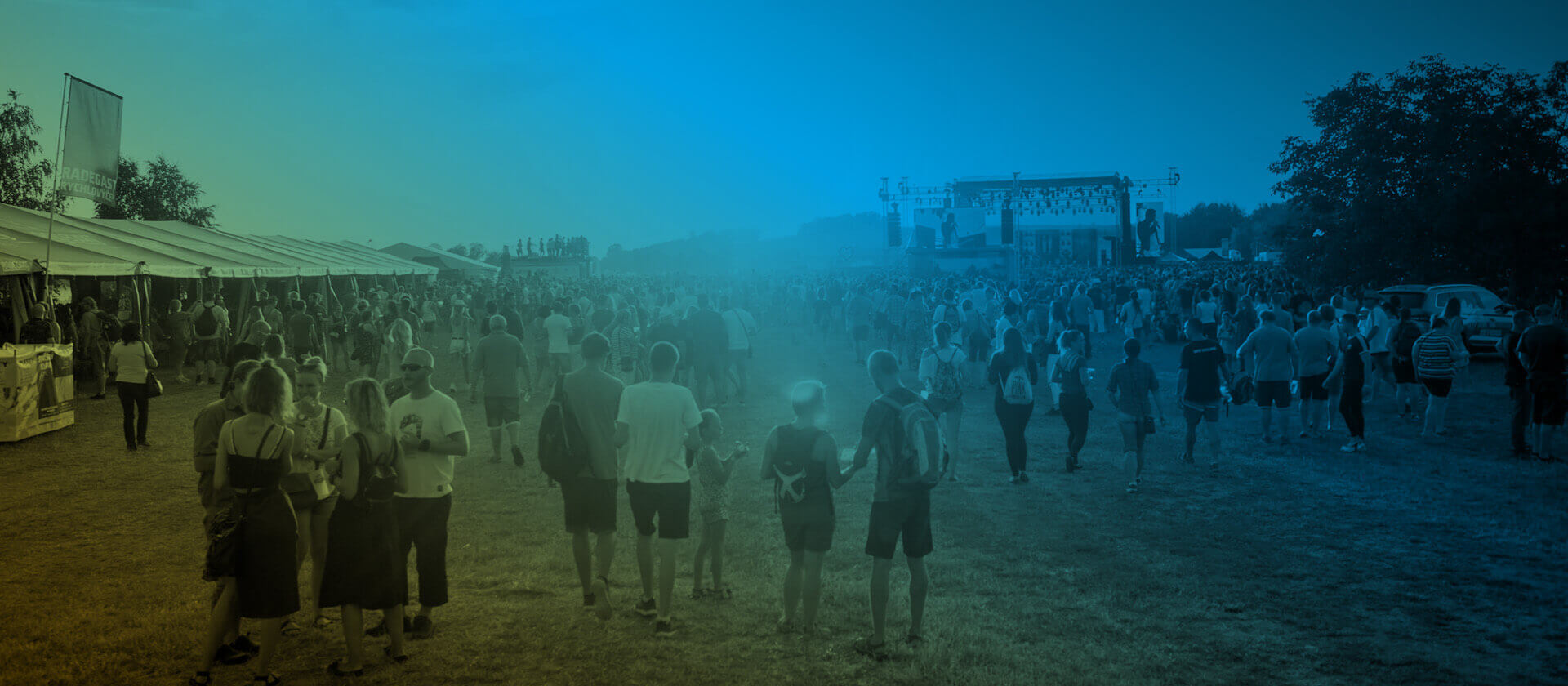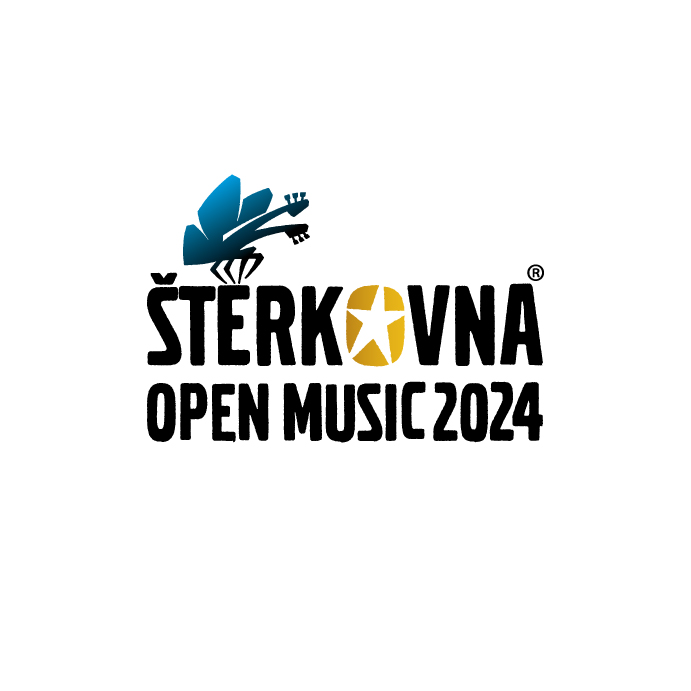The Štěrkovna Open Music Festival has long been aware of its responsibility toward the environment, the community, and the future of society as a whole. In 2025, we continue to systematically develop our concept of “Sustainable Entertainment”, which we began building with genuine commitment and a clear understanding of its impacts and consequences. Our goal is not merely to “greenwash” the event’s image, but to genuinely and measurably transform how the festival operates – moving toward responsibility, efficiency, and long-term sustainability.
Environmental Sustainability
One of the pillars of our efforts is environmental protection. Our first step in this area was the introduction of a deposit cup system, which significantly reduced single-use packaging and made the festival grounds visibly cleaner and more pleasant. Encouraged by these positive results, we later introduced waste separation, allowing part of the waste to be used as raw material for new products.
We are now taking sustainability even further. Since 2023, we have been collaborating with the Department of Environmental Engineering at the Faculty of Mining and Geology of VŠB–Technical University of Ostrava (VŠB-TUO) to comprehensively address waste management. During the festival, waste streams are monitored, and research is being conducted into alternative packaging materials in the context of the circular economy. This partnership has also resulted in several student theses and numerous seminar projects. In connection with this collaboration, we have expanded our core team with a new member from VŠB-TUO, who is also a local resident of Hlučín, to help manage the sustainability agenda.
The results of our work are already visible – we were nominated for a national sustainability award for events, alongside major Czech festivals such as Rock for People and Let It Roll. We also regularly share our experience at professional conferences on environmental responsibility.
In 2024, we achieved a historic milestone by measuring the festival’s total carbon footprint for the first time. In cooperation with VŠB-TUO experts, we established a precise figure of 197 tons of CO₂e emissions. Transportation accounted for nearly 80% of the total footprint (including visitors, artists, and logistics), with personal and freight vehicles covering more than 42,000 km – roughly the circumference of the Earth. These data now help us to target our actions more effectively. We already use electric vehicles provided by local companies for all on-site transport, and we are developing a train connection system, as well as shared bike rentals and free bicycle storage. In 2025, we will once again introduce special late-night bus routes to nearby towns and villages, ensuring that visitors can return home safely.
Waste Management
Beyond emission reduction, we focus on minimizing and processing waste, guided by the 3R principle – Reduce, Reuse, Recycle. We limit waste by using reusable cups for both hot and cold beverages. Wherever possible, drinks are served from kegs into these cups, drastically cutting the amount of single-use packaging.
We also emphasize reuse – banners and other promotional materials are used for several years or repurposed for backstage coverage. The same applies to other festival equipment reused from previous editions. Items that cannot be reused are carefully sorted for recycling.
Waste sorting plays a central role. While festivals naturally generate large amounts of waste, we convert much of it back into raw materials through thorough separation of paper, plastic, glass, cans, oil, and food waste. Only non-recyclable waste ends up in mixed bins, significantly reducing landfill disposal. We also collect old mobile phones, e-cigarettes, and small electronics, which visitors can exchange for rewards.
In 2023, we managed to separate 68.9% of all waste, and in 2024, this rose to over 70%. Visitors produced a total of 6.82 tons of waste, including 2.06 tons of glass, 1.16 tons of plastic, 0.6 tons of paper, and 0.86 tons of food waste. Mixed waste amounted to only 2.06 tons – just a few grams per person per day.
We also collect food waste and use tableware made from sugarcane fiber, which is biodegradable and suitable for biogas processing. This supports the circular economy, where waste becomes the start of something new rather than the end.
Energy and Water
We continue to search for economically viable energy solutions. While we draw as much electricity as possible from the local grid, not all needs can be met this way. To cover the rest, we use modern EURO 6-compliant diesel generators, with plans to transition gradually to more sustainable and economically realistic alternatives.
Our mobile festival infrastructure is also connected to local water systems, giving every visitor free access to drinking water – greatly reducing the need for water transport. We have upgraded our sanitation facilities with a mobile pressurized sewer system, directing wastewater straight to the municipal treatment plant. A major improvement was replacing chemical toilets with ceramic ones, increasing both comfort and environmental friendliness.
Transportation
Although the festival now attracts visitors from all over the Czech Republic, a significant number still come from the Hlučín region. For these attendees, we aim to make travel as convenient as possible while minimizing environmental impact.
In cooperation with the Moravian-Silesian Region and the Association of Municipalities of Hlučínsko, we are preparing additional bus routes serving nearby towns such as Sudice, Třebom, Píšť, Bolatice, Chuchelná, Hať, and Bohuslavice. These routes will operate mainly at night, ensuring safe returns home. We also plan special train connections for visitors coming from further parts of the region.
Using visitor data (origins, arrival and departure times), we design transport schedules that maximize efficiency and comfort. Cyclists can use our free bicycle storage, operated in cooperation with the non-profit organization Kola pro Afriku (Bikes for Africa).
Within the festival area, mobility is 100% electric, thanks to our partnership with local companies such as Chlebiš s.r.o. and Automotoland s.r.o.. This both promotes electromobility and helps reduce the carbon footprint.
Caring for the Local Environment
Caring for the festival site and surrounding area is a top priority. We recognize that this unique location deserves both respect and active maintenance. We participate in the nationwide “Let’s Clean Up the Czech Republic” initiative, joining forces with fans to clean the Štěrkovna area and its surroundings. Our ambition, however, goes beyond cleanliness – we aim to enhance biodiversity and improve the quality of the local ecosystem.
Reducing Our Carbon Footprint – Offsetting
Our vision for 2028 is to achieve NET ZERO emissions. We focus on identifying the largest sources of emissions and significantly reducing them. For those that cannot be completely eliminated, we plan to offset them through tree planting, achieving total carbon neutrality.
Since 2024, we have been partnering with Mastercard on their tree-planting program. This collaboration ensures that all trees are carefully selected, planted in ecologically appropriate locations, and given proper long-term care.
Alongside tree-planting projects, we continue to improve transport optimization, energy efficiency, and sustainable consumption among both suppliers and festival-goers – a comprehensive approach to achieving NET ZERO.
Economic Sustainability
Our economic sustainability is built on local cooperation. We work primarily with regional companies and service providers for technical support, stage construction, sanitation, printing, and promotion. Whenever possible, we source locally, supporting the local economy and creating jobs. We also actively promote Hlučín-based businesses to our visitors – for instance, local cafés offering special festival breakfasts have become a beloved part of the event.
We also ensure fair working conditions. Most of our staff are students and seasonal workers involved in setup, maintenance, and teardown. No one works for minimum wage – we pay above-standard wages, believing that a satisfied worker delivers quality results and contributes to a positive atmosphere.
Transparency is equally important. We use a cashless payment system, allowing visitors to review their spending afterward. Any unused credit is refunded free of charge. This system increases event safety and ensures fair relationships between organizers, vendors, and visitors.
Social Sustainability
We strongly support our community, with a special focus on families. We are continually developing our Family Zone, which has become a natural part of the festival grounds. In cooperation with local organizations such as Mámy sobě, the Montessori Center, and others, we are expanding this zone with new activities and spaces for the youngest visitors. The festival is open to children and seniors alike, because we believe entertainment should be for everyone – and children are an integral part of it.
Together with VŠB-TUO and other partners, we also raise awareness about sustainability, offering visitors access to verified and expert environmental information during the festival.
We are proud to cooperate with Kola pro Afriku, which provides free bicycle storage and shares our core values – responsibility, solidarity, and sustainability.
Equality and Cultural Sustainability
Long before gender equality became a widely discussed issue, we promoted equal opportunities regardless of gender. Our core team of six people is perfectly balanced – three men and three women – and the same applies to our extended team of twelve. This balance occurred naturally, reflecting our inclusive approach to team development.
Since 2016, our programming has focused on unique projects available only at Štěrkovna Open Music. Thanks to this initiative, we’ve hosted exceptional performances such as: Michal Horáček – A Tribute to Petr Hapka, Bohemia (modern Czech folk by Jiří Burian), Balkan Battle Live, David Stypka with a youth orchestra from Hlučínsko, Tata Bojs – Nanoalbum, Poletíme? with the Láska nebeská Choir, Tomáš Klus with the Janáček Philharmonic, and more.
Some of these special projects are original festival productions, such as Symphonic Dance Music, which combines the Janáček Philharmonic Orchestra, DJ Lowu, and singer Dasha, performing the greatest hits of global dance music.
In 2025, we are emphasizing regional collaboration – for example, O5 a Radeček will perform with the Prajzský Symphony Orchestra made up of amateur musicians from Hlučínsko, and local students from the Hlučín Grammar School will stage a concert version of Jesus Christ Superstar. Other highlights include Richard Müller with a gospel choir, Čechomor with Martina Pártlová and Kandráčovci, and Kaczi with the National Theatre Choir of Moravia-Silesia.
Through these activities, we educate our audience and support local artists, many of whom perform alongside major stars. We also collaborate regularly with the Hlučín School of Arts – a partnership we plan to continue and deepen.
Looking Ahead
The Štěrkovna Open Music Festival is not only a festival – it is a living laboratory of new ideas. We offer space for students, researchers, and companies to test ecological solutions in real-world conditions. Each year, we learn, measure, and improve. Our detailed carbon footprint and waste management records allow us to set realistic yet ambitious goals.
2025 marks another step toward our vision – entertainment that doesn’t destroy but creates, a festival that inspires, educates, and brings joy, and above all, a sustainable future we are proud to help shape.


